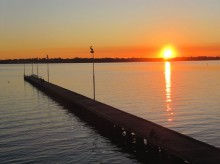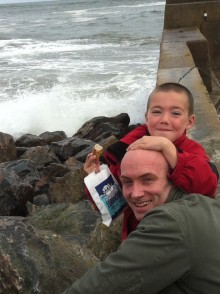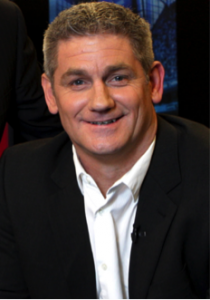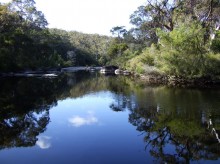Bill briefly describes how many families fall apart during the early stages of recovery and points out that as a society we do very little about this. Stephanie Brown describes this effect on family as the trauma of recovery.
‘An interview with Greg Williams – The Anonymous People’ by Veronica Valli
 Greg Williams and The Anonymous People are in the news a lot recently which is great. Exactly what we want. Here’s a new interview from Veronica Valli.
Greg Williams and The Anonymous People are in the news a lot recently which is great. Exactly what we want. Here’s a new interview from Veronica Valli.
‘If you are in the recovery community then you would have heard of the movie The Anonymous People. A ground breaking movie that highlights the need for more advocacy and more access to treatment for addicts and alcoholics.
Many of the participants of the movie have been interviewed for my Recovery Rocks series: Emmy award winning actress and NYT best selling author Kristen Johnston, former NBA basketball player Chris Herron, Recovery advocate and media commentator Joe Schrank.
My Favourite Blogs: ‘Experiences of a mother of two young heroin addicts’ by Mark’
 A very moving blog which first appeared on Wired In To Recovery (WITR) in May 2009 and on Recovery Stories in June 2013. Mark blogged regularly on WITR until the community closed.
A very moving blog which first appeared on Wired In To Recovery (WITR) in May 2009 and on Recovery Stories in June 2013. Mark blogged regularly on WITR until the community closed.
“We found my 20 year old brother dead of an overdose. He had just kicked the habit so tolerance was low. He started a job and the first payday was his last.
Mum wrote this after I got clean. Copy and use it anywhere it can be of use.”
An Update From StoryTeller Iain Donald
 “I regret to a certain degree ever getting involved with drugs, but involving myself with drugs and battling the chaos that goes along with that lifestyle has made me who I am. And I am really happy with who I am.”
“I regret to a certain degree ever getting involved with drugs, but involving myself with drugs and battling the chaos that goes along with that lifestyle has made me who I am. And I am really happy with who I am.”
I recently heard from Iain Donald, author of one of our Stories, This is Me. Iain, from Scotland, is coming up to four years drug-free.
In brief, his Story describes his addiction to heroin and crack cocaine, a period spent inside prison, time on methadone maintenance programmes, and support from a treatment service in Glasgow – amongst many other things. Most importantly, Ian met and fell in love with Nadene and her wonderful son William and they have settled down as a family – and had a new family member, Harvey. Iain works for the Scottish Association for Mental Health in one of their homeless units.
Recovery Rocks: Gavin Crosisca
 A long overdue visit to Veronica Valli’s excellent blog Recovery Rocks, this time involving an Australian sportsperson.
A long overdue visit to Veronica Valli’s excellent blog Recovery Rocks, this time involving an Australian sportsperson.
‘Recovery Rocks this week with Australian rules footballer Gavin Crosisca. Gavin played 246 of Australian rules football with Collingwood before moving into coaching for over 25 years.
But despite his successful sporting career Gavin hid a 25 year drug problem from his teammates and fans.
He describes his addiction as being ‘a fire inside of him’ as it slowly destroyed his life, finances and family.
My Favourite Blogs: Ed Mitchell – Lost & Found
‘… documentary [from 2009] on the latest steps to recovery of former BBC and ITN broadcaster, Ed Mitchell, is broadcast exclusively on Inexcess TV – marking Ed’s return to television and first employment following his battle with alcohol and homelessness.
In his new role as editor at Inexcess Television, Ed produced and directed his latest documentary, Ed Mitchell: Lost and Found, the second programme to be broadcast on Ed’s life story, from living as a white-collar tramp to his subsequent recovery from alcoholism.’
This blog first appeared on this website in June 2013. Ed Mitchell no longer works for Inexcess Television. Check out the first documentary made about Ed’s alcohol-related problems. His book Headline to Hard Times is well worth a read.
‘Unraveling the Mystery of Personal and Family Recovery: An Interview with Stephanie Brown, PhD’ by Bill White (Part 4)
 We continue Bill White’s interview with Stephanie Brown on family recovery. I cannot emphasise to you enough how important Stephanie’s work is.
We continue Bill White’s interview with Stephanie Brown on family recovery. I cannot emphasise to you enough how important Stephanie’s work is.
‘Bill White: It poses the question of what the ideal scaffolding would be like that could support recovery.
Stephanie Brown: I think we understand much better today that the family encounters a vacuum on entering recovery with or without formal treatment or outpatient therapy. This vacuum within the family, and the same kind of vacuum in the community – the neighborhood, town, city, work, school, and social environments – is a significant problem.
‘Unraveling the Mystery of Personal and Family Recovery: An Interview with Stephanie Brown, PhD’ by Bill White (Part 3)
 ‘Bill White: In 1999, you published a book with Virginia Lewis that virtually transformed my own understanding about family recovery from alcoholism. Could you share with our readers how the book came to be written and some of its major conclusions?
‘Bill White: In 1999, you published a book with Virginia Lewis that virtually transformed my own understanding about family recovery from alcoholism. Could you share with our readers how the book came to be written and some of its major conclusions?
Stephanie Brown: The book came at the end of a ten-year research project that Virginia and I undertook in 1990 to study the process of recovery for the family. I had always wanted to know what happens to the whole family when the drinking of one or both parents stops.
We asked the same main question I had asked previously: is the process of recovery for the family similar to the process for the individual, and do the stages of active addiction and recovery I identified for the individual hold true for the family? We discovered pretty quickly that these stages do hold true and that they are a good guideline for understanding what happens with recovery growth following abstinence.
Chiara de Blasio Tells Her Story
Chiara is daughter of New York Mayor-elect Bill de Blasio. In this professionally prepared clip, she talks about her depression and anxiety and her illicit drug use and treatment. Chiara also emphasises that recovery can’t be done alone.
YouTube clip intro reads:
‘For many, the holiday season is a time for joy. But it’s also a time when many of those battling depression and substance abuse find their struggle most difficult. In the hopes of helping others, Chiara de Blasio wants to share her personal story.
If you think you have a problem, don’t wait. Ask for help. Talk to a friend, family member, or health professional today.’
‘Out of the dark into the light: The beginning of the recovery journey’ by Rosie
 My good friend Wynford Ellis Owen of The Living Room Cardiff was a regular blogger on Wired In To Recovery. While he was on holiday, his ‘stand-in’ Rosie wrote some beautiful blogs. Here’s the first.
My good friend Wynford Ellis Owen of The Living Room Cardiff was a regular blogger on Wired In To Recovery. While he was on holiday, his ‘stand-in’ Rosie wrote some beautiful blogs. Here’s the first.
‘Leaving the dark place of my drinking and moving into the light of my new life has been a journey of self discovery – a journey of change – a painful journey at times – a wonderful journey – which has brought me what I was seeking most – peace.
I have come to understand that recovery is a healing process of mind, body and spirit, and time is an essential factor in this process. We cannot expect to recover from the illness of alcoholism or any other addiction overnight. We cannot undo the harm done in a short space of time. This is a fact which I believe is so often not recognised – people are not realising the importance of time in the recovery process.
Brene Brown on joy and gratitude
Vulnerability expert Brene Brown talks about the relationship between joy and gratitude and offers a few tips on how to cultivate more joy in your own life.
Check out Brene in our section of books to help your recovery.
Independent film producer shines light on addiction and recovery
Leslie Glass and her daughter Lindsey Glass have just made their second documentary about recovery. Here is a film clip and report from YourObserver.
At a 2011 luncheon for the premiere of her first documentary film, “The Secret World of Recovery,” Leslie Glass remembers hearing a collective gasp as she told the crowd of nearly 400 people that she was the mother of a recovering addict. It was the first time she’d ever told anyone.
“When you come out with it for the first time, you have a sense of shame about it,” she says. “What did I do wrong as a parent that I have a child who’s had these difficulties? I think that’s so common; people don’t want other people to know.”
Marion’s Story: My Family, Father’s Side
Marion learnt a great deal about her culture, land and spirituality from her father and his side of the family. They had lived in York and surrounds for generations.
Marion’s Story: Conclusion
Marion’s family have faced adversities, risen above them, and taught Marion to be the resilient person she is today.
Surviving What?: Experience of Being Taken Away
The taking of Aboriginal children from their families by the authorities still impacts on Aboriginal people today.
‘A healed and healthy country: understanding healing for Indigenous Australians’ by Tamara Mackean
 Yesterday, I blogged about a description of healing by Professor Helen Milroy, an Aboriginal Child Psychiatrist and Australia’s first Aboriginal doctor. This wonderful description of healing was also included in the article below which appeared in the Medical Journal of Australia, but here I focus on the rest of the article.
Yesterday, I blogged about a description of healing by Professor Helen Milroy, an Aboriginal Child Psychiatrist and Australia’s first Aboriginal doctor. This wonderful description of healing was also included in the article below which appeared in the Medical Journal of Australia, but here I focus on the rest of the article.
Of course, much of what is said here is relevant to recovery, because recovery is healing. I have highlighted some sentences that I think are particularly relevant to people working in the recovery field worldwide, whatever their cultural background.
‘The Apology by the Prime Minister to Aboriginal and Torres Strait Islander peoples of Australia in February 2008 was the first step in a significant healing journey.
Strategies to Face Adversity: Inner Strength
A number of study participants spoke about their inner strength, or strong spirit, helping them overcome adversity.
Phil’s Recovery Minute
“… There is hope for everyone. And for me hope stands for, ‘Hang On Peace Exists’.
And I found peace after twenty five years. But it didn’t come easily, it didn’t come quickly. It came one day at a time and putting one foot in front of the other.
And here I am. I feel peaceful. I intuitively know how to handle situations that used to baffle me. I have the love and respect of my family and I love and respect them. I have an incredible staff to work with each and every day, and my life is filled beyond measure.


